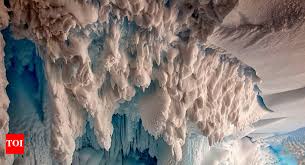
The Importance of Antarctica
Antarctica, the southernmost continent, plays a crucial role in the Earth’s climate system. As the coldest, driest, and windiest continent, it is home to vast ice sheets that hold about 60% of the world’s fresh water. Understanding Antarctica is vital not only for environmental science but also for assessing the impacts of climate change, which are felt globally.
Recent Events in Antarctica
Recent studies have illuminated alarming changes taking place in Antarctica. Average temperatures have increased significantly, leading to rapid ice melt. In 2022, scientists reported that the Thwaites Glacier, sometimes referred to as the “Doomsday Glacier”, is weakening faster than previously thought, contributing to rising sea levels that could inundate coastal communities worldwide.
Additionally, during the 2023-2024 research season, the largest group of international scientists are collaborating on the International Thwaites Glacier Collaboration project. Their goal is to uncover more about this critical region to predict future sea-level rise and gather more data on how climate change impacts the continent.
Wildlife and Ecosystems
Antarctica is renowned for its unique wildlife and ecosystems. Species like emperor and Adélie penguins have made the harsh environment their home, adapting over millions of years to survive under extreme conditions. However, the shifting climate poses significant threats to these species, as changing ice conditions affect their breeding habits and food sources.
Conclusion: The Global Significance of Antarctica
The significance of Antarctica cannot be overstated. As a barometer for climate change, it provides essential data for understanding global warming and its effects. The continent is now at a crossroads: increased research and conservation efforts are crucial to mitigate the ongoing impacts of climate change. The future of not just the Antarctic ecosystem, but of the entire planet, could very well depend on how well we understand and protect this remote frontier.



